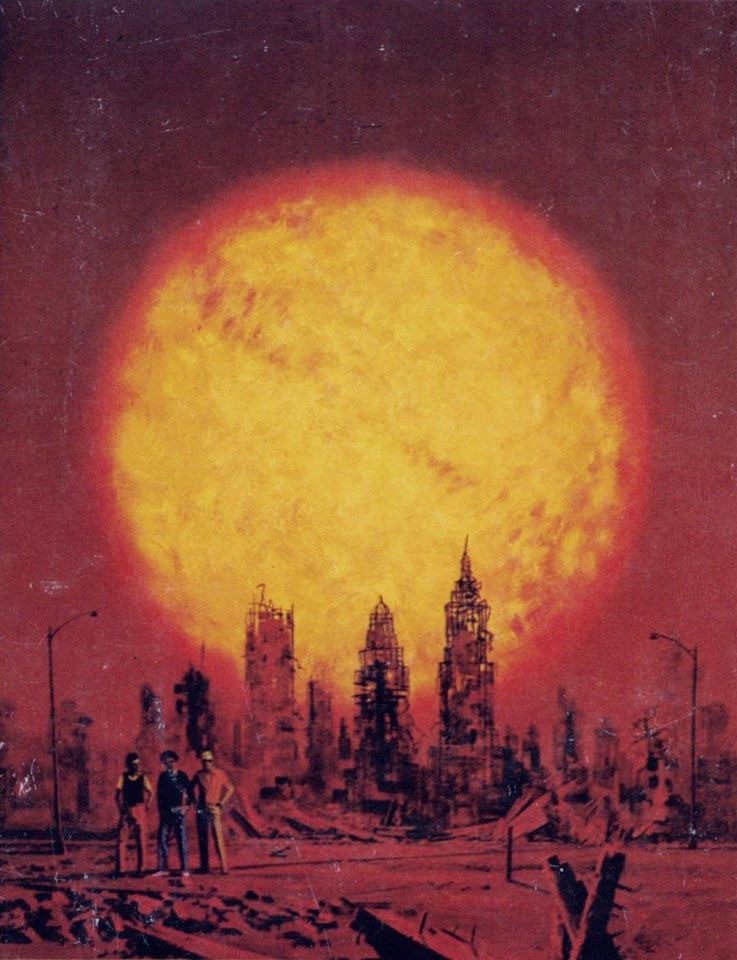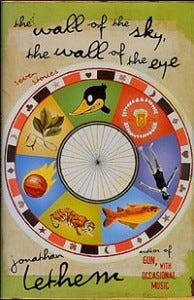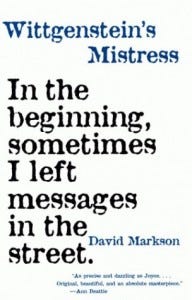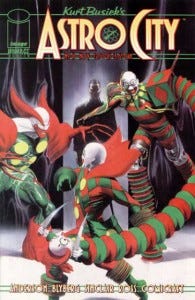essays
Standing Inside the Revision, Afraid


The familiar is reassuring. I can be reasonably sure that when I wake up in the morning, the space in which I wake will be the same as the one I fell asleep in; that coffee will still be something I grind and add to boiling water, and that cars will still drive down my street at most hours of the day. Change one of those–coffee’s now a paste added to ice; the primary form of transportation in New York is sledding–and the break that would occur is the stuff from which compelling fiction can arise. Not just a change in history (world or personal), but a change in the underlying rules of the world. Explorations of that have ranged from the speculative to the metaphysical, but underneath nearly all of them is a core of fear.
Jonathan Lethem’s short story collection The Wall of the Sky, the Wall of the Eye contains one of the most unnerving pieces of fiction I’ve ever encountered. It’s called “Five Fucks,” and it’s a kind of chamber piece, focusing on a man and a woman whose (sexual) collisions cause the world to be rewritten entirely, again and again — the shape of that reality becoming simpler and simpler. What begins as a realistically-rendered version of New York City transforms, over the course of the story, into a line-drawing simple cartoon landscape. There’s a third character here, too, a second man who yearns, unrequited, for the woman. Thankfully, Lethem doesn’t necessarily subscribe to romantic comedy clichés–he’s not there to be her eventual salvation; instead, he, too, is a sad presence, lurking on the fringes of the narrative, sympathetic but caught in the orbit of a disastrous bond. In whatever permutation, from the realistic to the Gothic, these characters collide; each time, the world as it’s been established is upended.
It’s a hell of a metaphor. It’s also something that, in the way that Lethem has written it, summons up a whole lot of dread. In a 2000 interview, Lethem commented that the story was, for him, an attempt to “write the ultimate, you know, ‘getting laid destroys the world’ story. Just to get it out of my system, and sort of examine the material.” Years ago, there was talk of director Michael Almereyda adapting it for film under the title Tonight at Noon, with a cast that included Chiwetel Ejiofar, Lauren Ambrose, Ethan Hawke, and Rutger Hauer. That any information about the film’s fate seems to have vanished from existence seems like a strange parallel to the story’s constant overwriting of reality.
“Looking for anybody, anywhere at all.” It sits there on the page, alone in its paragraph, a condensed howl.
If you’re a certain kind of reader, there’s something terrifying about novels and stories in which the world itself seems to be (or is) nonexistent. The apex, for me, of this style would probably be David Markson’s Wittgenstein’s Mistress, whose protagonist wanders an emptied-out Earth, looking back on her life and interacting with the abandoned spaces around her. It’s a surreal landscape, not a literally apocalyptic one, but its emphasis on emptiness leads to plenty of disquiet. One passage about seeking personages fictional, historical, and contemporary ends with the sentence “Looking for anybody, anywhere at all.” It sits there on the page, alone in its paragraph, a condensed howl.

Markson’s novel defies reason: its setup isn’t one that holds up to any logical explanation; instead, like Samuel Beckett’s The Unnameable, it’s a distillation of loneliness, and the sense of being surrounded by absence. Alternately, it’s the sense that everything familiar has slowly changed: that sense that anything that could be relied upon is now on the verge of collapse. The shifting, looping city in Samuel R. Delany’s Dhalgren at times reads like a physical manifestation of this, as do the altered (and constantly fluctuating) landscapes of Lethem’s Amnesia Moon and Nick Harkaway’s The Gone-Away World. All three novels also ask questions about identity, and they mirror that in the sometimes-bizarre goings-on outside of the bodies of the characters. In other instances, the use of a constantly fluctuating landscape can be politically charged: consider the use of disorientation as aesthetic device in works like Ann Quin’s Tripticks and Deborah Levy’s Swallowing Geography. Here, the settings themselves become unnerving, and the reader is left with far less to grasp onto.

Those same questions and anxieties can also creep into much more overtly pulpy forms. If you’ve read superhero comic books for long enough, you’ve probably encountered a storyline in which history is changed, and some hero (or heroes) must travel through time to bring continuity back to what it was before (or alter it further). One of the stories in the Kurt Busiek-written comic Astro City is a riff on this concept. The man at its center, it transpires, was married to someone whose erasure from history was a side effect of the rewriting of history. And rather than treat this as a trope of the genre, Busiek emphasizes the emotional side of it, and gets at something that feels very true: this kind of erasure would, in fact, be a nightmarish situation for those enveloped in it.
Grant Morrison’s run on the DC Comics character Animal Man ended with the title character meeting up with the person responsible for a series of horrific events that had befallen his family: namely, a Scottish writer named Grant Morrison. Their dialogue was alternately terrifying and wryly funny, but it’s also a nerve-wracking encounter between creation and creator. Think also of Chuck Jones’s cartoon “Duck Amuck,” and of Stephen King’s short story “Umney’s Last Case,” in which a fictional detective watches as his world is slowly dismantled by the author who created him.
These shifts in the world, and in the way characters react to them, tap into some of our deepest anxieties: that our bodies will betray us, that the relationships we take for granted may be abruptly sundered, that the places we know and care about will change beyond any point of recognition. Writers who blend this with a heady dose of the surreal can create works that disorient even as their more chilling effects burrow deep within the mind, joining with primal concerns there.









